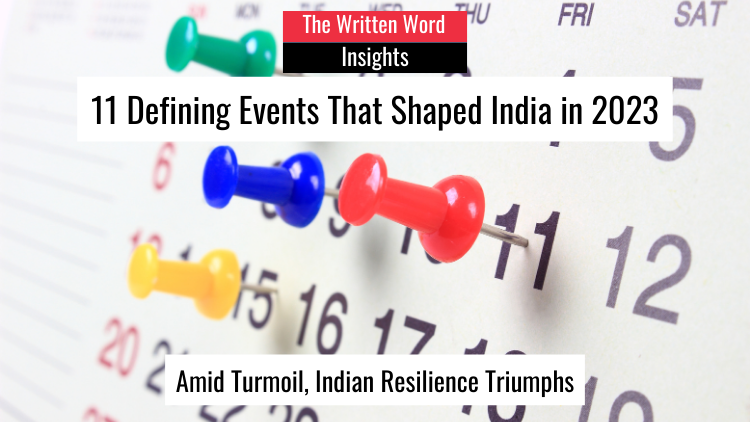
When Officials Use Power to Silence Voices
In a recent event in Guwahati, Assam, a journalist named Dipankar Medhi allegedly faced harsh treatment from officials while simply performing his duties. The incident is undeniably a matter of media freedom; however, it also highlights the misuse of power – power entrusted to officials for serving the public, not for oppressing them.

10 Reasons Why India Needs More Women Judges
In a compelling speech delivered on Jan. 5, Supreme Court Justice B.V. Nagarathna addressed the pressing need for an increased presence of women in India’s judiciary. This change, she argued, is essential for fundamentally enhancing the delivery of justice within the country.

India’s Civil Society Under Pressure
Two scholars from Germany’s Heidelberg University say their study has found that civil society organisations in India, particularly those championing the rights of minorities, Dalits and Adivasis, are facing intensified state scrutiny and regulatory constraints, a situation resulting in a marked narrowing of the civic space within the country.

India’s Environmental Policy at a Crossroads
The Supreme Court of India has put a hold on environmental clearances previously granted by the environment ministry to mining companies that had commenced operations without the requisite environmental clearance, casting a spotlight on the country’s environmental governance, which must strike a balance between industrial interests and the imperative of environmental protection.

Why Governments Spend More During Elections
As the general elections approach this year, it is anticipated that government debt will rise, a trend commonly observed as governments tend to increase spending during election periods to bolster their chances of retaining power. This practice, recurring in almost every election season and observed globally, has mistakenly been normalised, with its significant impact on us, the ordinary citizens, often being overlooked.

Warning Issued on India’s Use of Antibiotics
A new government report on the use of antibiotics in India, highlighting its potential to foster “antimicrobial resistance,” or AMR. This condition arises when bacteria evolve, developing resistance to antibiotics, presenting a substantial threat to human health.

Nearly 18 Million Workers Can’t Seek Work Under MGNREGS
Over 17.8 million “active” workers under the Mahatma Gandhi National Rural Employment Guarantee Scheme (MGNREGS) can no longer look for work due to the central government’s mandate for the Aadhaar-Based Payment System (ABPS) for wage payments. The government asserts that workers were given ample time for compliance; however, civil society groups contend that the system is unreliable.

What’s Enforcement Directorate Got to Do With Dalit Farmers?
In Tamil Nadu, a land dispute involving two elderly Dalit farmers and a local political leader has led to a controversial intervention by the Enforcement Directorate (ED), a central government agency, raising eyebrows and causing public outcry, according to a media report.

11 Defining Events That Shaped India in 2023
As 2023 draws to a close, a reflection on the year’s significant events reveals a notable contrast: the resilience of ordinary citizens and a few national triumphs serve as a counterbalance to the tragedies and erosion of civil and political rights that have marked these months.

Broadcast Bill Raises Alarms Over Press Independence and Free Speech
The scope and certain provisions in the Broadcasting Services (Regulation) Bill, 2023, raise critical concerns about the future of media freedom and the independence of digital journalism in India, according to analyses by independent media outlets.

Rampant Use of Spyware Against Indian Journalists, Report Says
There is new evidence of the ongoing use of Pegasus spyware against Indian journalists, says a report released on Dec. 28 by Amnesty International and The Washington Post. This comes about two months after Apple alerted iPhone users globally, including over 20 journalists and opposition politicians in India, about potential targeting by state-sponsored attackers.

India’s Fiscal Deficit Looks Set to Surpass Target
India’s fiscal deficit is likely to exceed the 5.9% of gross domestic product (GDP) target, according to India Ratings and Research. Though by a small margin, the increase could have several implications for the Indian economy and its citizens.

The Culture of Lying on Oath in Indian Courts
The pervasive culture of perjury in Indian courts – termed by the Supreme Court as a “way of life” – has led to a significant erosion of truth, resulting in miscarriages of justice that devastate lives and diminish public trust in the legal system, according to a media report.

Criminal Code Amendment Bills Become Law
The President of India on Dec. 25 gave assent to three controversial criminal law bills, marking a pivotal moment in the nation’s legal history. Citizens can expect a significant shift in the balance between state power and individual rights in the country.

Indian Army Accused of Killing Civilians in Kashmir
The recent civilian deaths in Kashmir, allegedly at the hands of the Indian Army following a rebel attack, require a critical evaluation against the backdrop of the “human security” approach. This framework, adopted to varying extents by many countries, can serve as a crucial reference point to gain a deeper understanding of the core issues behind the tension between national security and human rights.

Can Robotic Cleaning Replace Manual Scavenging?
Rajasthan has introduced robotic cleaners, a significant technological advancement aimed at replacing manual scavenging. While this represents a notable step forward, it may not scratch the surface of a deeper, more profound issue: the persistent lack of dignity imposed on Dalits, the community most affected by manual scavenging. After all, the problem of manual scavenging is not merely technical but deeply human.

The Struggle Beyond the Mat in Indian Sports
The ousting of the Wrestling Federation of India chief Brij Bhushan Sharan Singh over sexual harassment allegations, followed by the election of his close aide as the new president, is a narrative deeply intertwined with the challenges faced by athletes in a system where political power often overshadows gender justice and sporting merit.

Is Parliamentary Democracy Collapsing in India?
The recent suspension of over 140 Members of Parliament in India marks a pivotal moment in the country’s political journey. This action, as noted by Pratap Bhanu Mehta, Contributing Editor at The Indian Express, signals a potential shift away from the established norms of parliamentary democracy. It’s a symptom of a broader transformation in India’s political landscape, raising significant concerns about the future of democracy and its institutions.

Infant Among 87 Victims Buried Months After Manipur Violence
Eighty-seven Kuki-Zo victims of the ongoing ethnic violence were finally buried on Dec. 20 in Manipur’s Churachandpur district. This solemn ceremony, attended by thousands, included the burial of a one-month-old infant, marking over seven months since the conflict began on May 3.

Thousands of Gujarat’s Migrant Children are Missing Out on Education
In Gujarat, a significant number of children from migrant worker families, particularly those involved in sharecropping, are not attending school, according to a report by IndiaSpend, which says this trend is prevalent among over 65,000 sharecropping families in the state, with an estimated 50,000 children migrating annually with their parents and remaining out of school for extended periods.
